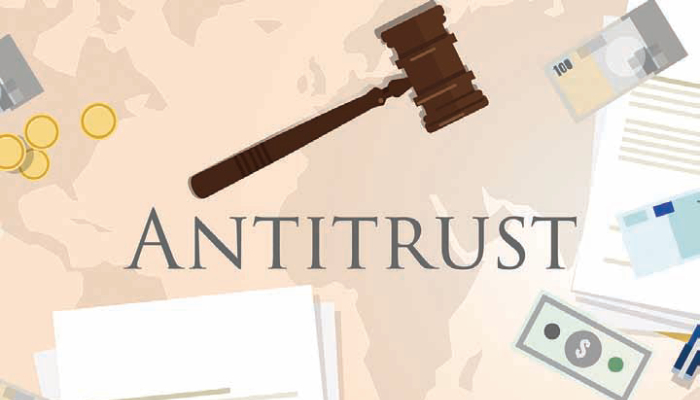
or

FRAND encumbered patents have always been the subject matter of a lot of legal battles, arising due to the ambiguities surrounding the current FRAND regime. There is an inherent tussle regarding the royalty rates between the Standard Essential Patent (“SEP”) holder and its implementers. The situation becomes more subjective since The Patents Act does not have any reference with respect to SEPs. Thus, in the present scenario, the SEP holder tends to approach the court for filing an infringement suit (seeking injunctive relief) against the licensee, who, in turn, approaches the Competition Commission of India (“CCI”) filing a complaint about the “abuse of dominant position” and “anti-competitive agreement” against the SEP holder. While there is no doubt that the High Court does have original jurisdiction with respect to a patent infringement suit, it is the CCI’s jurisdiction which is of interest. This article seeks to examine the jurisdiction of CCI with respect to SEPs and also tries to argue why antitrust intervention isn’t really needed.
The prima facie anti-competitive nature of SEPs cannot be ignored, and there is always the potential for abuse of dominant position by the SEP holder. In this respect, abuse of dominant position is slated to occur mainly in two ways-
In the cases in which the CCI has investigated into, inter alia the contravention of FRAND terms by Ericsson, the complainants have submitted the following-
The CCI observed that the relevant market is SEP(s) in GSM-compliant mobile communication devices in India and that Ericsson enjoys a dominant position in this market. As we all know, The Competition Act does not prohibit being in a dominant position, it prohibits abuse of such dominance. In this regard, the CCI held that Ericsson was guilty of abuse of dominant
The Delhi High Court judgment in Telefonaktiebolaget lm Ericsson v Competition Commission of India (Ericsson vs CCI) is an important one in the sense that it clarifies a lot of ambiguities surrounding the FRAND regime in India, and in particular, the jurisdiction of CCI in FRAND encumbered patents. To recap-
The judgment makes it clear that the CCI’s jurisdiction is not excluded in FRAND encumbered patents. However, is the involvement of CCI really necessary?
It is argued that it is the court that is best equipped to deal with questions that arise in cases involving SEPs. Firstly, there is a grey area with respect to how a FRAND royalty rate is to be determined, in case negotiations between the parties have failed. Since there is no universally acclaimed method to determine a FRAND royalty rate, a lot of emphasis is given to the parties’ negotiation history. Inherent in FRAND licensing requirements is the expectation that the parties will negotiate in good faith to determine appropriate royalties. The courts have more expertise than CCI in answering such questions. Since SEP-holders thrive on the contractual negotiating powers of the parties, the jurisdiction of the court cannot be undermined.
Secondly, as regards seeking injunctive relief being an abuse of a dominant position, in deciding whether or not an injunction should be granted, the courts usually follow the four-pronged test laid down in the eBay case. One of them is that public interest would not be disserved by a permanent injunction. The implementers being driven out of the market due to the grant of such injunction is a competition law issue and affects the public interest. While the courts will certainly not delve deep into the anti-competitive effect granting of such an injunction might entail, it is still something they would consider on a prima facie basis, at the very least. The injunction, in nature of an equitable remedy, the courts are capable to address the same and intervention by CCI is not needed.
While going into the economics of each of the two methods to determine FRAND royalty is beyond the scope of this article, it is important to note that the Delhi HC’s method of calculating FRAND royalty rate on the downstream product as opposed to the value of the chipset has been hailed by certain academicians to be in tune with “sound economic principles.”
While the Delhi HC judgment clarifies the jurisdictional aspect of CCI, it’ll be interesting to see how future cases involving SEPs will be decided by CCI, particularly after its (arguably) incorrect method of calculating FRAND royalty rate, which was overruled by the Delhi HC. Even should the CCI exercise its jurisdiction, it’ll have to take a cautious approach and make appropriate references with respect to questions it is not competent to answer. For now, however, the Delhi HC judgment, if anything, sufficiently demonstrates that the Indian courts are quite competent to decide such cases.
Subhajeet Roy currently working in the Legal Department of Wockhardt Ltd, graduated from Tamil Nadu National Law University, Trichy. He is passionate about Intellectual Property Rights and Competition Law.

Lex Witness Bureau

Lex Witness Bureau

For over 10 years, since its inception in 2009 as a monthly, Lex Witness has become India’s most credible platform for the legal luminaries to opine, comment and share their views. more...
Connect Us:


The Grand Masters - A Corporate Counsel Legal Best Practices Summit Series
www.grandmasters.in | 8 Years & Counting
The Real Estate & Construction Legal Summit
www.rcls.in | 8 Years & Counting
The Information Technology Legal Summit
www.itlegalsummit.com | 8 Years & Counting
The Banking & Finance Legal Summit
www.bfls.in | 8 Years & Counting
The Media, Advertising and Entertainment Legal Summit
www.maels.in | 8 Years & Counting
The Pharma Legal & Compliance Summit
www.plcs.co.in | 8 Years & Counting
We at Lex Witness strategically assist firms in reaching out to the relevant audience sets through various knowledge sharing initiatives. Here are some more info decks for you to know us better.
Copyright © 2020 Lex Witness - India's 1st Magazine on Legal & Corporate Affairs Rights of Admission Reserved